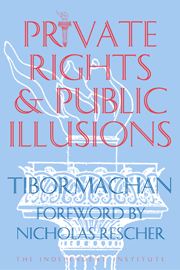When she was about 16, my older daughter and I were sitting in my small house in Auburn, AL, and she turned to me to ask, “How do you deal with the fact that so many people think you are wrong?” She knew. They did, and still do.
Just yesterday I took part on a panel discussion at Boalt Hall, UC Berkeley’s School of Law, organized by the branch of the Federalist Society there, a group with a largely conservative membership in the legal profession. Of the three of us on the panel, I was clearly the most radical—or if you will, outrageous. The topic was “Is America Post-Democratic?” That meant, as I gathered, whether the United States of America is still something of a democracy or has this changed, if it ever was.
My colleagues on the panel, a political science professor from UC Berkeley and a former director of a Green organization affiliated with Ralph Nader, spoke mostly about the particulars of contemporary politics. The professor lamented the alleged hegemony of the Bush conservative administration, arguing, if I understood him correctly, that Bush’s team has been moving toward a more and more remote government, one lacking accountability and severely restricting the input of majority of the members of the citizenry. The man from Green, in turn, lashed out as the allegedly inordinate influence big corporations have on American politics, itself a clear indication, he claimed, of anti-democratic trends in the country.
Both of these chaps pretty much took it as given that democracy is simply a swell thing, the more of it the better, period. In contrast, I argued that democracy is of merit only when severely constrained. In this I had some good authority from the American Founders, of course, from Federalist No. 10, where Madison, Hamilton and Jay wrote: “Democracies have ever been spectacles of turbulence and contention; have ever been found incompatible with personal security or the rights of property; and have in general been as short in their lives as they have been violent in their deaths.” To indicate that his sentiment had strong historical support especially now, I mentioned the democratic selection of Adolph Hitler, of Benito Mussolini and the example of some current democracies such as Haiti.
But then I went out to point out that taxes are a form of extortion and the majority’s approval of it—and Justice Holmes calling it the price we pay for civilization—doesn’t change this fact. I also defended the view that the power wielding of the democratic method is at most appropriate for small role of selecting administrators of a just legal order and, perhaps, in the initial institution of a constitutional system of individual rights. (Here I was thinking of how nicely this is shown in that classic Western movie, The Man Who Shot Liberty Valance.)
As expected, no one on the panel and the audience appeared to agree with any of this, although to my surprise several law students did come up to me afterwards to ask me very friendly questions about my position. The unpopularity of my views might put me in a funk, you could speculate, but I have had a pretty long history of similar responses from colleagues and people in general for over 40 years of thinking as I do. (I was inspired to take these kinds of ideas very seriously back in 1961, when I first encountered classical liberalism in John Locke and Ayn Rand as a member of the US Air Force in Washington, DC. Also, they pretty much are why I trekked from Hungary to the USA back in the 1950s.)
So, what did I answer my daughter who, incidentally, shares most of my convictions on political matters? My response went along the lines of, “Well, sweetie, I like being popular, I like having friendly colleagues, but I must say I like truth even more.” Later I learned that this is a bit like what Newton scribbled in his Cambridge notebooks: “Amicus Plato, amicus Aristotles; magis amica Veritas” (Plato is my friend, Aristotle is my friend, but truth is a better friend).
And, let’s face it, when back in the early 60s I ran across the ideas that I found to be closest to the truth as far as I could tell from my own explorations and, later, my studies, there were very few folks who took them seriously, which is no longer the case. Still, in terms of percentages, those convinced of the truth of individual rights and the justice of a regime grounded on them are still too few.
Yet think of it this way: The idea that each person is, by virtue of the very nature of his or her humanity, a sovereign being, a self-ruler not to be ruled against his or her will by anyone else is not only true but also the most radical idea in all of political history. So why expect that it would be all that popular anyway? It takes time for such a novel, outrageous idea to catch on, if it ever fully will.








